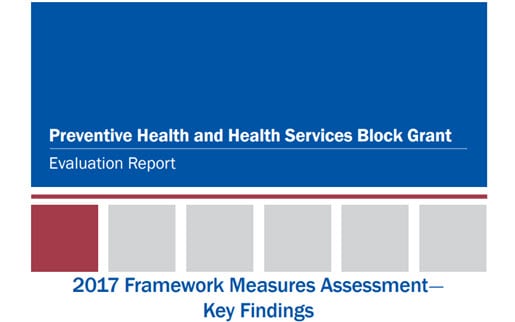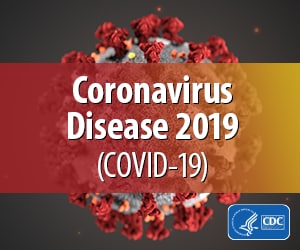Key Findings Report—2017
PHHS Block Grant Evaluation—2017 Framework Measures Assessment
In October 2017, the National Center for State, Tribal, Local, and Territorial Public Health Infrastructure and Workforce conducted the first data collection using the PHHS Block Grant Measurement Framework. Data were collected on the measures using a web-based questionnaire given to PHHS Block Grant coordinators. The data collection covered the grantees’ performance period of July 1, 2016–June 30, 2017. The response rate for the questionnaire was 93% (n=57/61).
Key Findings
The PHHS Block Grant is supporting vital public health activities in grantees’ jurisdictions. Grantees are collectively using their funds to improve their ability to collect essential data; improve the efficiency and effectiveness of operations, programs, and services; address emerging needs; and implement evidence-based interventions. Below are highlights of the findings. For details, read the full report: Preventive Health and Health Services Block Grant Evaluation Report: 2017 Framework Measures Assessment—Key Findings[PDF – 1 MB]. The report presents the first aggregate measurement of grant outcomes for the PHHS Block Grant.
Public Health Infrastructure Improved
Information Systems Capacity Improved
The PHHS Block Grant is helping health departments improve the capacity of their public health information systems. The data collected by public health information systems are essential for identifying, prioritizing, and effectively addressing public health problems. These systems provide timely, actionable data for decision-making not only by the grantee, but also by the local and tribal health departments that use these systems.
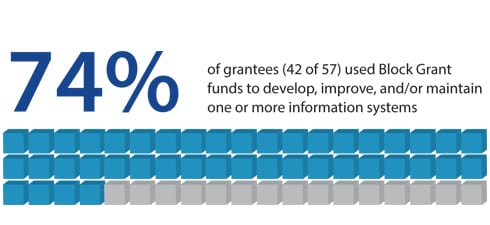
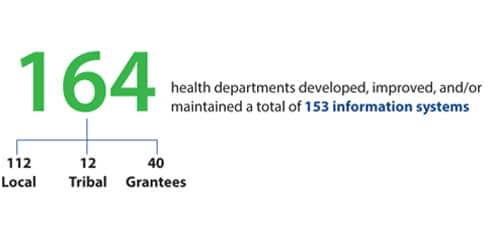
Grantees are using PHHS Block Grant funds to improve efficiency and effectiveness within their agencies and in other agencies within their jurisdiction. More than two-thirds of grantees implemented quality improvement projects that improved the efficiency and/or effectiveness of one or more operations, programs, and services. These quality improvement activities contribute to grantees’ ongoing efforts toward measurable improvements in services or processes that improve their communities’ health.
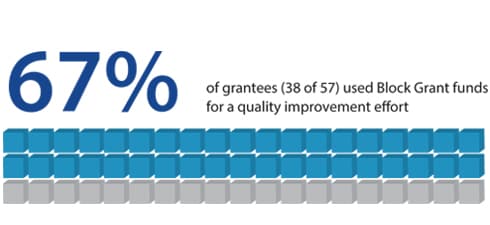
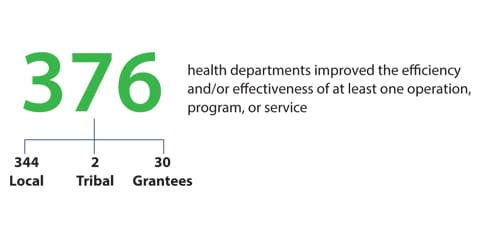
Emerging Public Health Needs Addressed
Grantees are using PHHS Block Grant funds to address specific emerging public health needs in their jurisdictions, such as opioid/prescription drug abuse and other challenges. Protecting and improving public health often requires flexibility to tackle public health problems as they emerge within the varying contexts in states, tribes, and territories. The PHHS Block Grant funds are used as a resource for health departments to address their jurisdictions’ emerging public health needs.
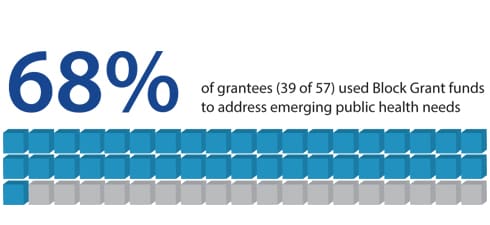
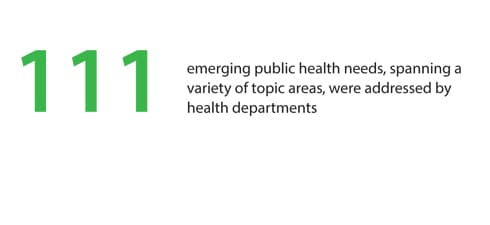
Evidence-Based Public Health Practiced
The PHHS Block Grant is being used to implement public health interventions1 that are known to work. Implementing public health interventions based on the best available evidence is an important practice for maximizing public health outcomes. The majority of grantees used grant funds to implement public health interventions, most of which were evidence based. Most of the interventions that were new or innovative (i.e., had weak or no evidence) were assessed to see how well they work.
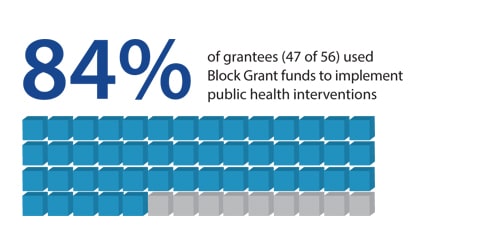
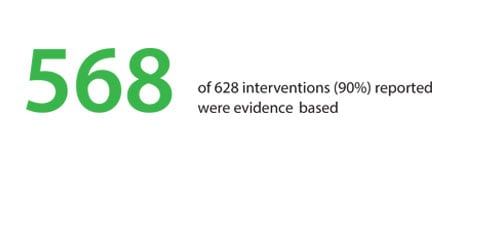
Most (70%) of the interventions that were not evidence-based were untested, innovative, and/or new.

- For the purposes of this evaluation, public health interventions are defined as any type of planned activity, such as a program, service, or policy, designed to prevent disease or injury or promote health in a group of people.
